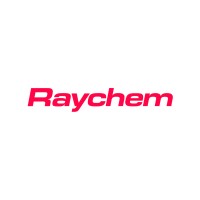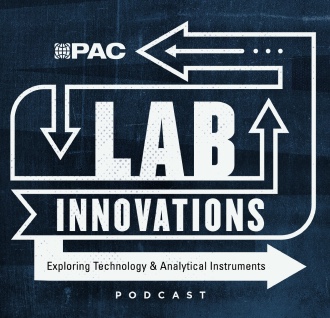-
Accelerating a more sustainable future
Executives are increasingly turning to sustainability as a force multiplier for competitive advantage. In the past, this was typically not a competitive focus simply a means of demonstrating responsible corporate citizenship and so sustainability initiatives often became siloed within the enterprise. Today, sustainability has become central to business operations, emerging as an essential element of a successful strategy. CEOs are discovering that “sustainability” and “profitability” ...
-
At AMETEK Process Instruments, we focus our experience on designing innovative analyzers that help our customers reach higher levels of productivity and quality. We achieve this by finding ways to overcome the limitations of current methods of process monitoring, control and quality assurance. Through this focus we have created some of the most capable technologies in the world. Our primary focus in analyzer design is reliability. We understand that you must have confidence ...
-
Axens is a group providing a complete range of solutions for the conversion of oil and biomass to cleaner fuels, the production and purification of major petrochemical intermediates as well as all of natural gas' treatment and conversion options. The offer includes technologies, equipment, furnaces, modular units, catalysts, adsorbents and related services. Axens is ideally positioned to cover the entire value chain, from feasibility study to unit start-up and follow-up throughout ...
-
Eliminate SCR fouling and restore production efficiency & NOx reduction
SCR fouling is typically caused by refractory or insulation fibers that accumulate and block the face of the catalyst, eventually leading to substantial flow disruption and excessive pressure drops, typically worsening over time. This pressure drop and flow maldistribution will cause production rate limitations, unplanned outages, and environmental compliance issues, as well as reduce he catalyst life. Solution: Proven methods for keeping SCRs operating efficiently include: - ...
-
Global Energy Outlook 2022: Turning Points and Tension in the Energy Transition
RFF's annual Global Energy Outlook report examines a range of projections for the global energy system, summarising key implications for global energy consumption, emissions, and geopolitics. About the authors: Daniel Raimi is a fellow at Resources for the Future (RFF) and a lecturer at the Gerald R. Ford School of Public Policy at the University of Michigan. He works on a range of energy policy issues with a focus on tools to enable an equitable energy transition. ...
-
Heat Management System for the LNG Industry
Chemelex protects critical processes within the LNG industry. Our Heat Management System (HMS) solutions support all aspects of the LNG supply chain - liquefaction and gasification plants, terminals, jetties and storage tanks. Raychemheat trace systems offer superior reliability with the highest lifetime value at lower installed cost and lower cost of ownership.
-
How sustainable aviation fuels are poised to dominate the sector
The need to decarbonise the aviation sector has never been clearer. In 2022, the International Air Transport Association (IATA) approved a resolution stating that the global air transport industry would achieve carbon‐neutral status by 2050. However, for a sector fuelled by crude-oil derived kerosene, it’s understandable that many are wondering how it can meet its targets.
-
Industrial Heat Tracing Solutions
Advanced Industrial Solutions. As the world’s largest provider of complete electrical heat management systems, primarily for the general process, oil and gas, chemical, and power generation industries, RAYCHEM provides innovative RAYCHEM products and TRACER turnkey solutions. RAYCHEM heat trace systems offer superior reliability with the highest lifetime value at lower installed cost and lower cost of ownership. Our premiere turnkey solutions include full life cycle support—ranging ...
-
Making and breaking NH3 – Ammonia and its place in the low carbon economy
Helping decarbonise the ammonia industry. With our extensive knowledge of science and technology, Johnson Matthey is helping decarbonise the ammonia industry with the following catalysts for green ammonia synthesis and cracking: PURAVOCTM GREEN 10 for oxygen removal from renewable hydrogen, KATALCOTM 74-1 GREEN, the highest activity ammonia synthesis catalyst, KATALCO 27-2 for high temperature ammonia cracking and KATALCO 27-612 for low temperature ammonia cracking.
-
Naphtha to Ethane / Propane from Honeywell UOP
The olefins industry is facing challenges with increasing competitiveness, in terms of cost of production, amidst a growing concern about feedstock security in many parts of the world. While ethane crackers remain the lowest cost to build and operate, many liquid crackers have already been built around the globe. These installations have sought to capture local price discounts for light naphtha and their operation is mainly due to feedstock security. Ethane is not prevalent in ...
-
nViro Integrated Waste Management Solutions
Honeywell UOPs nViro technologies integrate waste management with the design of the process unit, producing opportunities for optimization and process improvements. nViro combines UOPs leadership in refining and petrochemical process technologies with UOP Callidus experience in waste stream management for powerful solutions to cut costs, reduce emissions and turn waste streams into revenue streams. nViro solutions cover a wide range of processes and wastes, providing practical ...
-
Transition to net zero: steps to decarbonize the oil refining industry
A review of the solutions being employed by oil refineries to reduce their Scope 1, 2, and 3 greenhouse gas emissions. Despite improvements in vehicle fuel economy, increasing adoption of hybrids, and EVs, petroleum- based fuel demand continues to grow, at least in the short- to mid-term! In general, demand is generated from population growth and increased car ownership, and both are increasing. However, during the pandemic, people concerned about health moved around less. Consequently, ...
-
UK public sector support for hydrogen research and innovation
The UK government has put research, innovation and ‘learning by doing’ at the heart of its approach to developing a thriving UK hydrogen sector — as set out in the 2021 UK Hydrogen Strategy. Research and innovation (R&I) will be vital to accelerating the growth of the UK hydrogen economy: it can help de-risk current technology while next generation technology is developed, drive efficiencies and cost reductions, address risks, and help answer key outstanding socio-economic ...
-
Environmental and economic benefits of electric process heating to reduce CO2 emissions
(Webinar) - As industries worldwide confront ambitious climate goals, electrification has become a vital strategy for reducing emissions and advancing sustainability. Whether in manufacturing, energy production, or heavy industries, electrification is transforming industrial processes by driving both environmental and economic benefits. While the primary goal is to move away from fossil fuel-based systems to significantly lower greenhouse gas emissions, electrification offers ...
-
How can process electrification accelerate decarbonization of refining and petrochemicals?
Is electrification the right fit to decarbonize the oil and gas sector? Despite global efforts, CO2 emissions continue to rise, placing the O&G industry under increasing pressure to reduce its carbon footprint. With the sector responsible for 15% of total energy-related emissions, and its associated processes heavily relying on fossil-fuels, strategic action is crucial to meet global climate goals. This webinar will explore the key drivers and challenges of decarbonization ...
-
Novel sulfur removal pathways to improve energy efficiency and decarbonisation
Decarbonisation and energy efficiency are key economic drivers for refining and petrochemical operators globally, along with emphasis on minimizing sulphur emissions. Sulphur removal has been practiced in the industry for decades. However, with the development of new media, adsorbents, and catalysts, it’s now possible to achieve the above stated goals by deploying these materials in different applications related to refinery and petrochemical sectors. This webinar will showcase ...
-
Decarbonising process heat with industrial heat pumps and steam compressors webinar
Industrial energy consumption accounts for about 25% of energy demand and CO2 emissions worldwide, with process heat being the most common application. Hydrocarbon and basic chemical processing plants are particularly process heat-intensive. Heat demand for basic operations distillation and heating of fluids in US industry is about as energy intense as all other industrial heat applications combined. At the same time, there is a vast, unused potential for waste heat in many plant ...
-
A hidden threat to refining and petrochemical operations
Did you know that a seemingly insignificant amount of biofilm can negatively affect heat exchanger reliability and efficiency and, as a result, significantly limit production? Attend this webinar from Solenis to gain valuable insights into risks and solution methodologies for biofilm issues. • Learn how biofilm can affect your profitability and production efficiency • Explore novel technologies from Solenis that mitigate the risks posed by biofilm • Hear about a leading ...
-
Decarbonization with hydrogen solutions
Demand for hydrogen is expected to increase up to ten-fold by 2050 when multiple industry reports predict 8-24% of the world’s final energy demand will be supplied by hydrogen. Hydrogen has a unique ability to address ‘hard-to-decarbonize’ sectors including refining, chemicals, steel, heating, long-haul transport, and long-term power storage — all of which currently produce significant CO2 emissions. To achieve this, hydrogen must be produced with significantly lower carbon ...





























